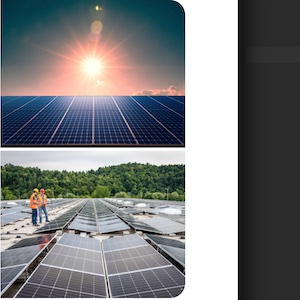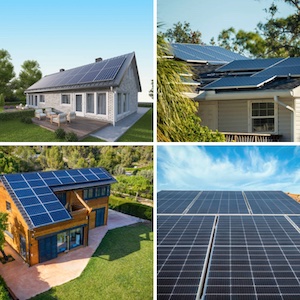Learn About Solar
More about solar power for residential properties
Solar panels and other diverse components are used in solar systems, also known as PV systems or solar power systems, to convert sunlight into electricity.
Solar panels are usually mounted on the roof of residential properties with solar systems installed, to maximise their exposure to sunshine. Sunlight is absorbed by the solar panels, which then transform it into DC energy. After passing through the inverter of the solar system, the direct current (DC) energy is transformed into alternating current (AC).
A household will use AC electricity instead of energy from the grid or batteries once it has been converted.
A solar system's capacity to generate power is determined by its size, the surrounding conditions, the length of daylight, and the system's efficiency.
In the event that a home with a grid-connected solar system is not producing enough electricity, the system will draw from the electrical grid as a backup source. A backup power source, such as a generator or battery, is used by a home with an off-grid solar system.
Note: Depending on the type of inverter the solar system has, a battery may also be added in a grid-connected system.
Surplus energy produced
A solar system will still generate electricity in gloomy, overcast conditions, but it will function optimally on a sunny, clear-sky, 25 degree day. Solar panels don't generate energy at night since they need sunlight in order to absorb solar radiation.
Where Are You In Your Solar Journey
Researching

Ready For Quotes

Already Installed

Contact Us
Contact
+27 (0) 71 087 6723
info@solarcentral.co.za
Address
210 Amarand Avenue, Waterkloof Glen
Pretoria, South Africa
Schedule
24 Hours / 7 Days Open
Office time: 10 AM - 5:30 PM
Platform
get in touch
Ready to Get Started
Please fill out this form and we will get in touch with you shortly.
